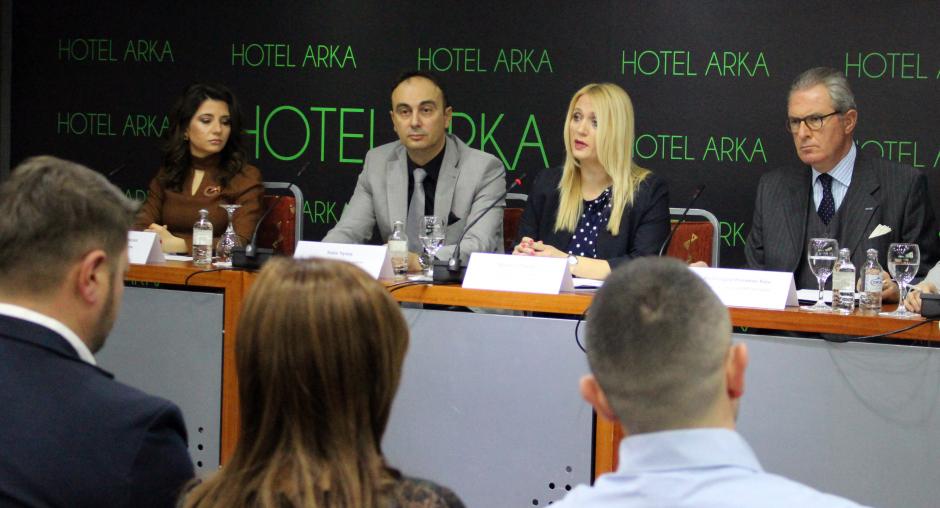OSCE Mission to Skopje, Ministry of Internal Affairs and Media Ethics Council call for no hate speech in the media, especially during pre-election period

SKOPJE, 5 February 2020 – At a press conference today in Skopje, the OSCE Mission to Skopje, the Ministry of Internal Affairs and the Council of Media Ethics, called for awareness to prevent hate speech in the media, especially during the pre-election period.
“Negative and hateful remarks find their way to online media and are quickly spread on social networks. The traditional media reaching out to an even wider audience often replicate these messages. If left unaddressed, the trend becomes a part of political discourse and often crosses over to society as a whole,” said the Head of the OSCE Mission to Skopje Clemens Koja.
Last year, under the auspices of the Mission, state and non-state actors established a Network against Hate Speech in the Media. “We see the Network as an important platform with the capacity to engage in further discussions on how to promote transparency and encourage best practices in developing alternative and counter-narratives in the media,” said Koja. The fight against hate speech in no case should limit the freedom of expression, lead to self-censorship, or be used to silence criticism or political opponents.”
Nakje Chulev, Minister of Internal Affairs of North Macedonia, said: “Censorship of hate speech in the media is primarily an obligation of the media themselves, their editorial policies and professional standards. The police neither can nor want to be somebody’s editor. What the police can do is strictly apply relevant laws incorporated in the country’s legislation.”
Katerina Sinadinovska, the President of the Council of Media Ethics, said: “It is important to continue promoting journalistic standards and make the media aware of their responsibilities. However, all efforts by the professional media community would be in vain if there were no response from the relevant institutions for sanctioning hate speech. Let us not forget that this is not just a violation of journalistic standards, but also a crime.”
Marina Tuneva, Director of the Council of Media Ethics, who presented the Charter of Ethical Reporting, stated that the Council’s data for 2019 show that 20 per cent of adjudications refer to cases of hate speech and incitement to violence or discrimination on different grounds. “The widespread presence of fake news, discrimination and hate speech, especially in the run-up to the elections, has imposed the need to confront these problems systematically and jointly.”
